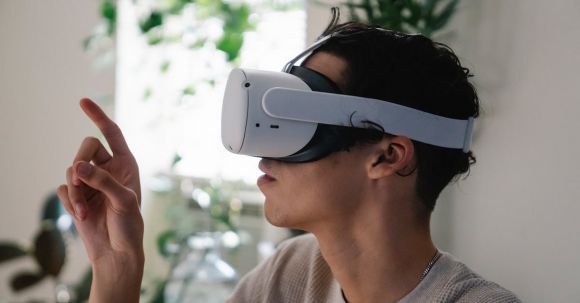Virtual reality (VR) technology has been making waves across various industries, and its potential impact on mental health therapies is particularly intriguing. With its immersive and interactive capabilities, VR has the potential to revolutionize the way mental health treatments are delivered. From providing exposure therapy for phobias to creating therapeutic environments for relaxation and stress reduction, VR has the power to enhance the effectiveness and accessibility of mental health interventions. In this article, we will explore the potential impact of VR on mental health therapies.
Enhancing Exposure Therapy
Exposure therapy is a widely used treatment for anxiety disorders, phobias, and post-traumatic stress disorder (PTSD). Traditionally, exposure therapy involves gradually exposing individuals to their fears or traumatic experiences in a safe and controlled manner. However, in some cases, it can be challenging to recreate realistic and immersive environments for exposure therapy.
This is where VR comes in. By simulating various scenarios and environments, VR can provide individuals with a highly realistic and controlled exposure experience. For example, someone with a fear of flying can be immersed in a virtual airplane, allowing them to confront and gradually overcome their fear. VR can also be used to recreate traumatic events for individuals with PTSD, helping them process and overcome their traumatic memories in a safe and controlled environment.
Creating Therapeutic Environments
Stress and anxiety are prevalent in today’s fast-paced and demanding world. Creating therapeutic environments that promote relaxation and stress reduction is crucial for maintaining mental well-being. VR can play a significant role in this regard by providing immersive and calming experiences.
Imagine being able to escape to a serene beach, a tranquil forest, or a peaceful mountain retreat without leaving the comfort of your own home. VR can transport individuals to these calming environments, allowing them to experience a sense of relaxation and tranquility. This can be particularly beneficial for individuals with anxiety disorders or those who struggle with stress management. These virtual environments can serve as a safe space for individuals to unwind, practice mindfulness, and learn relaxation techniques.
Increasing Accessibility
One of the significant advantages of VR is its potential to increase accessibility to mental health therapies. Many individuals face barriers to receiving traditional therapy, such as limited availability of specialized providers, financial constraints, or physical disabilities. VR has the potential to bridge these gaps and make mental health treatments more accessible to a wider population.
With the use of VR headsets, individuals can access therapy from the comfort of their own homes. This eliminates the need for travel and allows individuals to receive treatment at their convenience. Additionally, VR therapy sessions can be more affordable compared to traditional in-person sessions, making mental health treatments more accessible to those with limited financial resources. For individuals with physical disabilities, VR can provide a level of mobility and access to therapeutic experiences that may otherwise be challenging to achieve.
Conclusion: A Promising Future for Mental Health Therapies
Virtual reality technology holds immense promise for the field of mental health therapy. By enhancing exposure therapy, creating therapeutic environments, and increasing accessibility, VR has the potential to transform the way mental health treatments are delivered. However, it is important to note that while VR can be a valuable tool, it should not replace traditional therapy entirely. Rather, it should be used as a complementary tool to enhance existing treatments and provide alternative options for individuals who may face barriers to traditional therapy. As technology continues to advance, we can look forward to a future where VR plays a more prominent role in mental health therapies, improving the lives of countless individuals.





